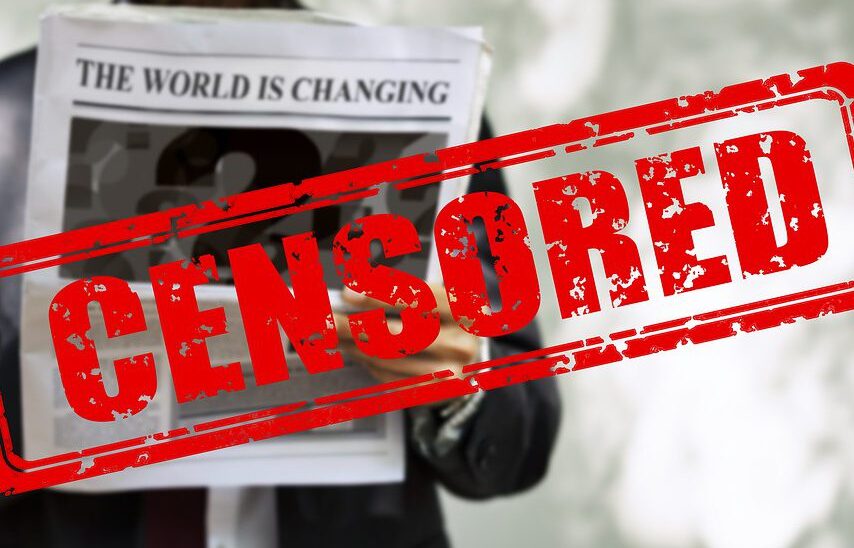More GOP PCs are censuring their lawmakers
Jakob Thorington Arizona Capitol Times//June 1, 2023//
A recent trend is growing among Arizona Republican precinct committees of censuring their state elected Republicans after the expulsion of a former Republican lawmaker.
Since former Rep. Liz Harris was expelled from the House on April 12, several Republican precinct committees have adopted resolutions that have censured the 18 Republican legislators who voted to expel Harris.
Most recently was Legislative District 3 Republicans in northern Maricopa County, who adopted their resolution on May 24. The committee also censured Rep. Joe Chaplik, R-Scottsdale, despite him voting to not expel Harris.

A news release from the LD3 Republican Committee stated Chaplik was censured because Chaplik found Harris guilty of breaking House rules and he “improperly admitted evidence per his Ethics Committee Report.” Chaplik, the House Ethics Committee chairman who represents LD3, allowed screenshots of a text conversation involving Harris that were anonymously given to the House to be used as evidence.
The House is not a court of law, and rules of what can be used as evidence and what the burden of proof is to find a member violated House rules is up to House members to decide.
LD3 precinct committeemen also censured Chaplik because he has blocked several of his own PCs and constituents on social media. Since Harris’ ethics hearing, Chaplik has engaged with several people on social media defending his role in the ethics process and he said in a statement on April 18 that the decision to expel Harris was demanded by House leadership.
“It has become clear from recent public statements that House Leadership had made up their mind to expel Rep. Harris from the moment her special elections committee wrapped up on February 23, 2023,” Chaplik said in the statement. “As chairman of the Ethics Committee, I did everything within my power to afford Representative Harris due process.
In the end, without any recommendation of disciplinary action from the committee, the House Leadership still moved towards expulsion.”
Speaker of the House Ben Toma, R-Peoria, was among the elected officials impugned during that February elections hearing, and he was accused of taking bribes from the Sinaloa Cartel by a speaker Harris invited to testify.
Toma and his fellow Republican House members who voted to expel Harris have also been censured by Republicans from LD8, LD9, LD11, LD12, LD13, LD25 and LD27 – Toma’s district.
While these Republicans may be expressing their disapproval of their elected officials, former lawmakers say a censure from Republican precinct committees isn’t likely to be politically damaging.
Stan Barnes, a former Republican state legislator and founder of Copper State Consulting Group, said getting censured at the minimum is “uncomfortable and disconcerting” and it can weigh heavily on a member since they report to precinct committeemen every month – but it’s not likely to be any more than that, he said.
“At worst it might give some ambitious competitor sitting in the room the feeling that maybe they should run for office … but it doesn’t usually lead to that either,” Barnes said.
Not all censures adopted by Republican precinct committees have been related to Harris. LD11 Republicans from south Phoenix and Laveen censured both Toma and Senate President Warren Petersen, R-Gilbert, in February for not setting Maricopa County’s budget to $0 to respond to election “misconduct” and “fraud.”
At the time, Toma said that censure was “misguided and quite frankly foolish.” LD4 Republicans in northeast Phoenix and Scottsdale censured Toma and Petersen for similar reasons on May 10.
Former Republican Rep. Joel John said voters are unlikely to know about precinct committee censures by the time they vote in an election. Instead, they care much more about how their elected lawmakers voted on policy issues.
“The average voter doesn’t play insider baseball like this,” John said.
But the number of censures has increased over time, Barnes said. He added that he believes it has developed with the rise of social media and interested parties using platforms like Twitter and Facebook to reach more people.
“There’s just kind of a polarization, a negative polarization, driven by the enabling aspects of social media that just energize a situation that doesn’t necessarily need any energy,” Barnes said.
Some of the people who have actively pursued and advocated for recent censures highlight the divide in the Republican Party. Harris has promoted censuring House members that expelled her along with Christian Lamar, a Republican candidate who lost the November general election to represent LD2 in the House.
Creosote Partners lobbyist Gaelle Esposito said she believes the censures are an attempt to encourage primary election challenges of current Republican lawmakers like Rep. Justin Wilmeth, R-Phoenix, and Sen. Steve Kaiser, R-Phoenix. Both of whom represent LD2.
Kaiser publicly criticized Lamar on April 26, calling him a “fraud” and referenced a domestic violence complaint filed against Lamar from 2015.
“Hits women and then lies about it. Censures republicans to raise his Twitter profile. Loses elections and blames everyone else. Keep up the great work @christianllamar,” Kaiser wrote in a tweet.
Esposito said she thinks the censures are being overused by local GOP committees, but she said it shows candidates like Lamar and Harris with more “unhinged” views are taking a greater hold of the party.
“There’s going to be someone with money that uses it to knock them (legislators like Wilmeth and Kaiser) out,” Esposito said.
Rep. Quang Nguyen, R-Prescott, recently said in an interview with KYCA 1490 on May 26 that he expects his precinct committeemen in Yavapai County to vote on a resolution to censure him and his seatmate Rep. Selina Bliss, R-Prescott, because they both voted to expel Harris.
Nguyen said the Yavapai County Republican Committee’s executive board was persuaded by about 20 people to approve a resolution that censured him and Bliss, and he criticized the board for giving in to the group’s demand.
“We (as legislators) don’t bend but 20 people apparently has the ability to tell the executive committee, ‘Yeah let’s censure these two good Republicans over a proven liar,’” Nguyen said.
Censures have been used on a larger scale. The Arizona GOP in 2022 censured former Republican Speaker of the House Rusty Bowers, who testified before the U.S. House Select Committee on the January 6 attack on the Capitol.
Bowers lost in the 2022 Republican primary race for a Senate seat in LD10 to Sen. David Farnsworth, R-Mesa, receiving 36% of the GOP votes.
Democratic precinct committees don’t use censures as often, but the state party censured independent Sen. Kyrsten Sinema when she still was registered as a Democrat in 2022. It remains to be seen how that censure, as well as Sinema’s decision to register as an independent, will affect her in the 2024 election.



















